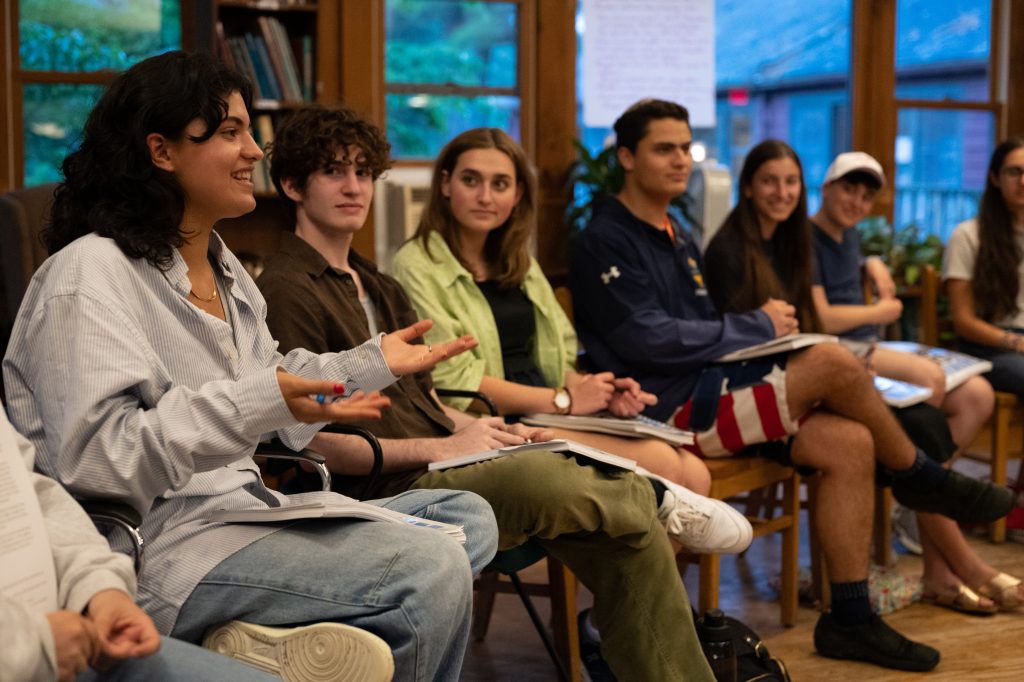 In 1987, Edgar M. Bronfman z”l laid the foundation for The Bronfman Fellowship’s unique, multi-faceted concept of pluralism. Since then, the Fellowship has impacted the lives of 1500+ alumni across North America and Israel, and has developed into a powerful methodology to combat the increasing levels of polarization within the Jewish community and the world.
In 1987, Edgar M. Bronfman z”l laid the foundation for The Bronfman Fellowship’s unique, multi-faceted concept of pluralism. Since then, the Fellowship has impacted the lives of 1500+ alumni across North America and Israel, and has developed into a powerful methodology to combat the increasing levels of polarization within the Jewish community and the world.
Striving for the Full Spectrum of Diversity
Throughout history, Judaism has been enriched by a multiplicity of expressions. When selecting Fellows, we strive to identify individuals from as wide a Jewish spectrum as possible, including but not limited to diversity in religious and cultural affiliation, race, ethnicity, spiritual beliefs, place of origin, socioeconomic status, gender, sexual orientation, physical abilities, and political views. We encourage Fellows to maintain their differences and take pride in the expression of their unique Jewish identities and stories, while recognizing and valuing the distinctiveness of others.
Instilling the Value of Learning from Others
At the heart of our teaching is the principle that Fellows can learn and grow from relationships with those who are different from them. The Pirkei Avot text Aseh l’cha rav (“Make for yourself a teacher, acquire for yourself a friend”), which Fellows study each year, grounds them in this principle. This text also elaborates on the value of giving others the benefit of the doubt and recognizing the potential of ongoing dialogue. Fellows are encouraged to connect with each other on a deep, personal level, enhancing their ability to be open to different and potentially opposing world views.
Using Jewish Text and Intellectual Tradition as a Basis for Dialogue
Our curriculum builds relationships across difference through a shared personal and intellectual encounter with Jewish text and ideas, regardless of Fellows’ prior level of familiarity with Jewish learning. We define the Jewish canon broadly, comprised of the creativity of the Jewish people across time. We build conversations around a diversity of works, including but not limited to traditional religious texts, philosophy, literature and poetry, visual art and contemporary thought. We approach sources as open-ended works that allow for multiple interpretations and an ongoing dialogue with the Jewish people.
Developing a Commitment to the Jewish Future
The future of the Jewish people is a global enterprise, to be nourished through ongoing and deepening connections between all Jews. By building relationships with those who are different from them, Fellows foster a spirit of generosity, conviction, and responsibility. Through this sense of community, Fellows are inspired to contribute to the unfolding story of the Jewish people.
Cultivating Empathy
We are committed to making room for the needs and narratives of all different types of people, and strive to create a space where voices are heard with compassion, patience, and deep understanding. Fellows are taught to listen resiliently, with open minds.
Ensuring Nuanced Discourse
The Bronfman Fellowship is a rare space where nuance, complexity, and disagreement are an essential part of the conversation. Fellows are encouraged to delve into paradoxical realities and to develop the capacity to hold potentially conflicting ideas in their heads simultaneously.
Embracing Challenge
Everyone participating in the Fellowship, including our staff, experience moments of intellectual comfort and moments of productive intellectual challenge. This delicate balance is essential to ensuring that everyone feels welcome to share their voice, perspective and questions – and, simultaneously, be able to undertake the difficult work of evolving one’s worldview, which can lead to the identification of not-yet-imagined solutions to complex problems.
